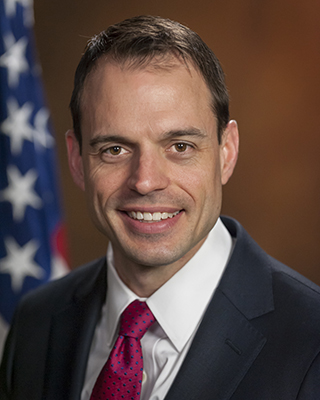The Justice Department’s top food safety prosecutor says the year-old “Yates Memo,” about holding individuals at corporations accountable, is “still evolving.”

In remarks prepared for delivery Wednesday at the Food and Drug Law Institute’s Enforcement, Litigation and Compliance Conference, Principal Deputy Assistant Attorney General Benjamin C. Mizer said “the memo’s changes in emphasis are yet to be fully measured.”
He was referring to the memo written just more than a year ago by Deputy Attorney General Sally Yates for all U.S. attorneys and assistant Attorney Generals. It called for the prosecution of individuals to be the priority in all corporate misconduct investigations.
“One of the most effective ways to combat corporate misconduct is by seeking accountability from the individuals who perpetrated the wrongdoing,” she said in the so-called Yates Memo.
The memo is said to be a guidance document, not policy, with steps that should be considered in every investigation of corporate misconduct, including those involving food safety.
Yates called for the following actions:
- In order to be eligible for any cooperation credit, corporations must provide to the department all relevant facts about individuals involved in corporate misconduct.
- Both criminal and civil corporate investigations should focus on individuals from their inceptions.
- Criminal and civil attorneys handling corporate investigations should be in routine communication with one another.
- Absent extraordinary circumstances, no corporate resolution will provide protection from criminal or civil liability for any individuals.
- Corporate cases should not be resolved without a clear plan to resolve related individual cases before the statute of limitations expires and declinations as to individuals in such cases must be memorialized.
- Civil attorneys should consistently focus on individuals as well as the company and evaluate whether to bring suit against an individual based on considerations beyond that individual’s ability to pay.
Many corporate and defense attorneys have commented on the “Yates Memo” since it was released, some critically. Most agree it was released because the DOJ was able to charge only one individual with criminal charges after the nation’s 2008-09 financial meltdown.
 Some corporate attorneys say the “Yates Memo” has since caused employees to be mistrustful of their companies.
Some corporate attorneys say the “Yates Memo” has since caused employees to be mistrustful of their companies.
Mizer’s remarks, however, provide a perspective from inside DOJ from someone who’s been overseeing food safety prosecutions, before, during and after the new guidance was issued.
He says corporate compliance offers have told DOJ attorneys that the memo helps focus officers and employees on best practices and higher standards.
“And that was exactly the intent,” Mizer said Wednesday. “Deterrence is better than punishment. Better for companies, better for government, and, most important, better for consumers. Every harm we avoid is a victory.”
Mizer says there is nothing new about the requirement for a corporation to fully cooperate if it’s going to get credit for cooperation. And, he said, the investigation should focus on individuals in both criminal and civil matters.
Shared enforcement between DOJ’s civil and criminal divisions, and “parallel proceedings” are “remedies to address the misconduct,” according to Mizer.
A corporate settlement will no longer include releases for individuals until they “actually participate in the settlement.” Cases against individuals must be separately solved, and claims against individuals in all civil matters must consider “all relevant matters.”
Mizer said large criminal and civil cases involving food safety have proven to take time. He says while DOJ has “seen positive results, the (Yates) Memo’s changes in emphasis have yet to be fully measured.”
While his civil division incudes 1,300 employee and 1,000 attorneys, Mizer told the group “our resources are limited. We depend on you — everyday — to ensure compliance with laws preserving safety and security and to detect and respond to bad behavior when, and as soon as, it surfaces.”
He said cooperation with government investigations “can be part of this effort.” Among the advantages of corporations cooperating with the government, he said, is reduced disruption to legitimate business operations; shorter and less costly investigations; reductions in delays; and the accelerations in determining culpability or innocence.
“Moreover, owning up to conduct and making genuine efforts to clean house can help organizations demonstrate the responsibility necessary to participate in government programs and contracts,” Mizer added. “Genuine cooperation is often a good business decision.”
With cooperation will also come DOJ’s support for reduced monetary sanctions or penalties. And Mizer gave some examples to what such cooperation should look like.
“Cooperation should be proactive and affirmative,” he said. “Early cooperation is more valuable than late. Voluntary, material participation is more meaningful than reluctant, begrudging assistance. We are looking for meaningful, active efforts to help get to the truth.”
Mizer also predicted president-elect Trump’s Administration will continue to support holding individuals responsible for corporate wrongdoing because “it isn’t ideological, it’s good law enforcement.”
During his remarks, Mizer gave the successful prosecutions of individuals involved with Quality Egg LLC and Peanut Corporation of America as examples of recent food safety cases. He said PCA was “not representative of the food industry as a whole,” but an example of how a small number of bad actors can cause enormous harm.”
He also said the 28-year prison sentence for former PCA President Stewart Parnell “Is the longest criminal sentence ever imposed in a food safety case.”
Mizer’s remarks came in the keynote address at the two-day conference that continues today at the Mayflower Hotel in Washington, D.C.
(To sign up for a free subscription to Food Safety News, click here.)
